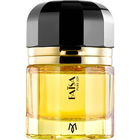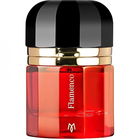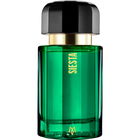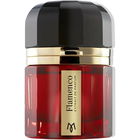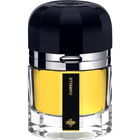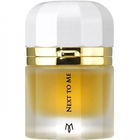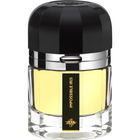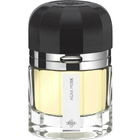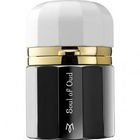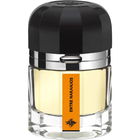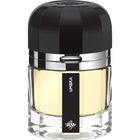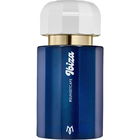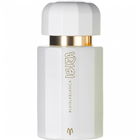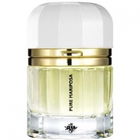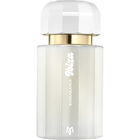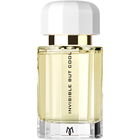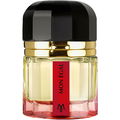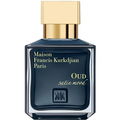
Kovex
31 Reviews
Translated · Show original

Kovex
Top Review
20
The Utopia of Paradise
In recent years, I have occasionally come across fragrances by Ramon Monegal. Although all of them left a good impression on me, none managed to excite me. This is probably the reason why I haven't delved deeper into his work until now. That should change with The New Paradise.
I wasn't even aware that Ramon Monegal is also considered one of the heavyweights in the perfume industry.
His ancestors founded the company Myrurgia in 1916, which not only produced drugstore items and perfumes but also paints and lacquers, eventually becoming the court supplier to the Spanish royal family and the most important international perfume company in Spain.
In the fourth generation, Ramon Monegal began his training in 1972 in Barcelona and continued it with renowned figures in the industry in Geneva, Grasse, and finally Paris. It seemed inevitable that his path would lead him to the top of the family business Myrurgia, which was taken over by Puig in 2000.
However, when one seemingly achieves everything, one strives for greater heights, culminating in his founding of his own perfume brand in 2008 (other sources indicate 2009) with the desire to create fragrances shaped by artistic freedom and without the constraints of others under his own name.
In this context, there is a beautiful quote from him:
“Alongside nature, my most important source of inspiration is literature. I can transform words into notes, phrases into chords, stories into compositions, and ink into imagined perfume.”
The New Paradise is the first of his fragrances that I tested, which immediately captivated me. Okay, that wasn't too difficult, as fig scents usually have an easy time with me. But this is not a fragrance that puts fig in the spotlight; it starts off with the typical green, unsweetened fig note. This is accompanied by a beautifully bitter citrus note, which I love. I can't really pick out the fern, but it might enhance the green impression alongside the fig.
In contrast to many other fig fragrances, this is not a soliflore, as soon rose and jasmine soon contribute very aromatic floral notes that do not drift into the feminine at all, as I cannot attribute any sweetness to the fragrance at any time, even though other testers (see statements) had a different impression. In my opinion, the fig prevents exactly that, as it remains present in perception for a long time, which certainly aligns with my preference for fig fragrances. Lily of the valley in fragrances often provides a certain coolness, which is also present here and prevents it from becoming too sweet or feminine, so the fragrance is rightly classified as unisex.
Not much happens after that. Oak moss frames the scent impression in a green and slightly bitter way. I can only faintly sense warming amber in the base; I wouldn't have guessed it in a blind test.
Overall, The New Paradise feels very “perfumy” to me, a term that has been discussed frequently in the forum, as everyone understands something different by it. For me, it means that the fragrance does not feel like a second skin on me, as if it merges with me. I feel rather perfumed. One might compare this to a man who usually wears jeans and a T-shirt/hoodie and is suddenly put into a fine suit. It pinches and constricts, feels unfamiliar, perhaps even feels like a costume. But eventually, he realizes that a sublime feeling of style and chic creeps in, and then he begins to appreciate it.
Whenever I move, The New Paradise wafts around my nose like a foreign body, and I try to determine the origin of the fine scent until I realize that it is me who smells so good ;) Is it bad that the fragrance does not merge with me? Not at all! On the contrary, this recurring pleasant scent brings me joy every time and puts a smile on my face.
Thus, in the end, the initially clumsy name of the fragrance The New Paradise reveals itself to me:
“Utopia of a new paradise. Impressionistic return to nature. Harmony between plants and new molecules. For me, the idea of paradise, as the best utopia of nature, constantly provokes the attempt to interpret it. In perfect harmony, to unite the pure joy of the senses, flowers, fruits, woods, and roots, like an allegorical nectar of optimism and well-being.”
I wasn't even aware that Ramon Monegal is also considered one of the heavyweights in the perfume industry.
His ancestors founded the company Myrurgia in 1916, which not only produced drugstore items and perfumes but also paints and lacquers, eventually becoming the court supplier to the Spanish royal family and the most important international perfume company in Spain.
In the fourth generation, Ramon Monegal began his training in 1972 in Barcelona and continued it with renowned figures in the industry in Geneva, Grasse, and finally Paris. It seemed inevitable that his path would lead him to the top of the family business Myrurgia, which was taken over by Puig in 2000.
However, when one seemingly achieves everything, one strives for greater heights, culminating in his founding of his own perfume brand in 2008 (other sources indicate 2009) with the desire to create fragrances shaped by artistic freedom and without the constraints of others under his own name.
In this context, there is a beautiful quote from him:
“Alongside nature, my most important source of inspiration is literature. I can transform words into notes, phrases into chords, stories into compositions, and ink into imagined perfume.”
The New Paradise is the first of his fragrances that I tested, which immediately captivated me. Okay, that wasn't too difficult, as fig scents usually have an easy time with me. But this is not a fragrance that puts fig in the spotlight; it starts off with the typical green, unsweetened fig note. This is accompanied by a beautifully bitter citrus note, which I love. I can't really pick out the fern, but it might enhance the green impression alongside the fig.
In contrast to many other fig fragrances, this is not a soliflore, as soon rose and jasmine soon contribute very aromatic floral notes that do not drift into the feminine at all, as I cannot attribute any sweetness to the fragrance at any time, even though other testers (see statements) had a different impression. In my opinion, the fig prevents exactly that, as it remains present in perception for a long time, which certainly aligns with my preference for fig fragrances. Lily of the valley in fragrances often provides a certain coolness, which is also present here and prevents it from becoming too sweet or feminine, so the fragrance is rightly classified as unisex.
Not much happens after that. Oak moss frames the scent impression in a green and slightly bitter way. I can only faintly sense warming amber in the base; I wouldn't have guessed it in a blind test.
Overall, The New Paradise feels very “perfumy” to me, a term that has been discussed frequently in the forum, as everyone understands something different by it. For me, it means that the fragrance does not feel like a second skin on me, as if it merges with me. I feel rather perfumed. One might compare this to a man who usually wears jeans and a T-shirt/hoodie and is suddenly put into a fine suit. It pinches and constricts, feels unfamiliar, perhaps even feels like a costume. But eventually, he realizes that a sublime feeling of style and chic creeps in, and then he begins to appreciate it.
Whenever I move, The New Paradise wafts around my nose like a foreign body, and I try to determine the origin of the fine scent until I realize that it is me who smells so good ;) Is it bad that the fragrance does not merge with me? Not at all! On the contrary, this recurring pleasant scent brings me joy every time and puts a smile on my face.
Thus, in the end, the initially clumsy name of the fragrance The New Paradise reveals itself to me:
“Utopia of a new paradise. Impressionistic return to nature. Harmony between plants and new molecules. For me, the idea of paradise, as the best utopia of nature, constantly provokes the attempt to interpret it. In perfect harmony, to unite the pure joy of the senses, flowers, fruits, woods, and roots, like an allegorical nectar of optimism and well-being.”
17 Comments




 Top Notes
Top Notes  Bergamot
Bergamot Fig leaf
Fig leaf Orange
Orange Heart Notes
Heart Notes  Jasmine
Jasmine Rose
Rose Lily of the valley
Lily of the valley Base Notes
Base Notes  Amber
Amber Oakmoss
Oakmoss Tonka bean
Tonka bean
 Parma
Parma Gandix
Gandix TantePoli
TantePoli Pluto
Pluto